Découvrez nos speakers
Inauguration
Ambassador Laurent Bili
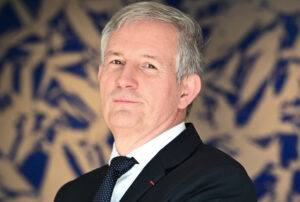 Mr. Laurent Bili is the Ambassador of France to the United States.
Mr. Laurent Bili is the Ambassador of France to the United States.
He was born on August 12, 1961 (61 years old). A graduate of the French National School of Public Administration (ENA) (Victor Hugo Year, 1989-91), Laurent Bili joined the French Foreign Ministry’s Strategic Affairs and Disarmament Directorate (1991-93). Seconded to the Defense Ministry as Deputy Diplomatic Adviser (1993-95), he then held several positions at the Quai d’Orsay:
- First Secretary and then Second Counsellor at the Embassy of France in Ankara (1995-99),
- First Secretary, Permanent Representative of France to the Western European Union (WEU) (1998-2000),
- Adviser to the European Union’s interim Political and Security Committee (PSC) in Brussels (2000-02),
- Head of Strategic Affairs (2002).
In 2002, he was Director of the Private Office of the Minister Delegate for European Affairs and became technical adviser at the Diplomatic Unit of the Presidency of the French Republic (2002-07). He successively held the positions of Ambassador to Thailand (2007-09), Director of the Defense Minister’s Civilian and Military Office (2009-10), Ambassador to Turkey (2011-15) and then to Brazil (2015-17).
Laurent Bili was then Director-General for Global Affairs, Culture, Education and International Development at the French Ministry for Europe and Foreign Affairs and G7/G20 Sous-Sherpa (2017-2019).
Prior to his appointment in Washington, Laurent Bili was Ambassador to China since September 2019.
Dr. Thierry Damerval
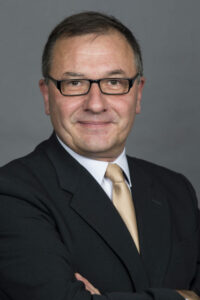 Thierry Damerval is the special science and technology envoy for the Ministry of Higher Education and Research and the Ministry of Europe and Foreign Affairs.
Thierry Damerval is the special science and technology envoy for the Ministry of Higher Education and Research and the Ministry of Europe and Foreign Affairs.
He was previously Chairman and CEO of the French National Research Agency (ANR) from 2017 to 2024. Thierry Damerval also was the Vice-CEO of Inserm between 2011 and 2017, having previously held the position of Deputy Director General for Strategy from 2007 to 2011. A doctor in microbiology from Paris Diderot University, he began his career at the Institut Pasteur in Paris and joined the French Atomic Energy Commission (CEA) in 1993, where he held a number of senior positions, including head of biology research programs, director of strategy and evaluation, and director of a CEA biomedical research center. He was also advisor on biological and medical research to the French Minister of Research (1996-1997), advisor on research and innovation to the Prime Minister (2005-2006) and Director of the Cabinet of the Minister of Higher Education and Research (2006-2007).
Dr. Alain Mermet
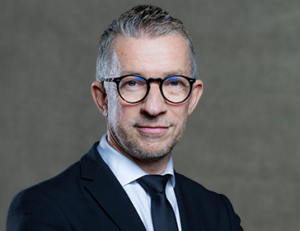 Alain Mermet is the new Director of the CNRS Europe and International Division (DEI), effective February 1, 2024.
Alain Mermet is the new Director of the CNRS Europe and International Division (DEI), effective February 1, 2024.
With a PhD in physics, Alain Mermet began his academic career as an associate professor at the Université d’Orsay (now part of the Université Paris-Saclay), then as a professor at the Université de Lyon. After four years as a researcher at the European Synchrotron Radiation Facility in Grenoble, he served as Attaché for Science and Technology at the French Embassies in the USA and Norway, before being appointed Director of the CNRS office in Brussels in September 2021.
Dr. Mireille Guyader
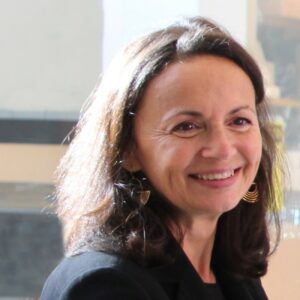 Mireille Guyader is the Counselor for Science and Technology for the Embassy of France in the United States since September 1st, 2021, and director of research at the French National Institute for Health and Medical Research (Inserm) since 2015. She oversees the Office for Science and Technology apparatus with the goals of monitoring advances in science and technology in the US, promoting bilateral partnerships in science and technology, and fostering exchanges of students, researchers and entrepreneurs.
Mireille Guyader is the Counselor for Science and Technology for the Embassy of France in the United States since September 1st, 2021, and director of research at the French National Institute for Health and Medical Research (Inserm) since 2015. She oversees the Office for Science and Technology apparatus with the goals of monitoring advances in science and technology in the US, promoting bilateral partnerships in science and technology, and fostering exchanges of students, researchers and entrepreneurs.
Prior to this position, she was Director of the Department for Research Mobilization and Innovation for Development at the French National Institute for Sustainable Development (IRD). Activities undertaken included research, consultancy, and capacity building activities in Africa, the Mediterranean basin, Latin America, and French overseas territories. Between 2011 and 2017, she was the Head of the Inserm Office in the United States. Her role was to be a liaison officer between Inserm’s Headquarters and laboratories in France and US biomedical research institutions. From 2006 to 2011, she was Science Attaché for the Life Sciences and Biomedical Research at the Consulate General of France in Los Angeles. The duties for this posting consisted of monitoring advances in science and technology in the US, promoting bilateral partnerships in science and technology, and fostering exchanges of students, researchers, and entrepreneurs.
Previously, she was a researcher at Inserm for 18 years, with research focusing on the understanding of molecular biology of the HIV and related viruses, including species involved in mother-to-child transmission. During her scientific career that she started as a postdoctoral fellow at the Columbia University in New York City, she worked at the Pasteur Institute in France, as a visiting scientist at The Scripps Research Institute in La Jolla, California, where she worked to get a better understanding of mechanisms of HIV neutralization and at the Centre Medical Universitaire in Geneva (Switzerland) where she studied the mechanism of HIV entry into target cells. She received her Master’s degree in Microbiology from the Université Paul Sabatier (Toulouse III) in 1987 and her PhD in Microbiology/Biochemistry from the Université Denis Diderot (Paris VII) in 1990.
Session I
Dr. Catherine Dulac
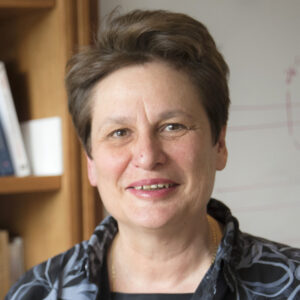
Catherine Dulac is the Samuel W. Morris University Professor in the Department of Molecular and Cellular Biology at Harvard University, a Howard Hughes Medical Institute Investigator and Professeure Extraordinaire at the Ecole Normale Supérieure, Paris, France. Her work explores the identity and function of neural circuits underlying social and sickness behaviors in mice.
She grew up in Montpellier, France, graduated from the Ecole Normale Supérieure, Paris, and did her PhD in the laboratory of Nicole Le Douarin at the Institute of Embryology in the Collège de France, work for which was awarded the Liliane Bettencourt Prize. As a postdoctoral fellow with Richard Axel at Columbia University from 1992-1996, she identified the first candidate genes encoding mammalian pheromone receptors.
In 1996 she was appointed Assistant Professor in the Department of Molecular and Cellular Biology at Harvard University, where she received early tenure in 2001, and became Department Chair from 2007 to 2013.
She is a member of the US and French Academy of Science, the American Academy of Arts and Sciences and the American Philosophical Society. She is the recipient of multiple awards including the Pradel and the Lounsbery Awards from the US National Academy of Science, the Karl Spencer Lashley Award from the American Philosophical Society, the Ralph W. Gerard Prize from the Society of Neuroscience and the 2021 Breakthrough Prize in Life Sciences.
She is a member of numerous Scientific Advisory Boards in the US and abroad, served as the Co-Chair of the Advisory Committee to the NIH Director from the BRAIN Initiative 2.0 Working Group and is a member of the Board of Directors of the Lounsbery Foundation, with a long-standing priority to facilitate French-American cooperation.
Dr. Emmanuelle Passegué
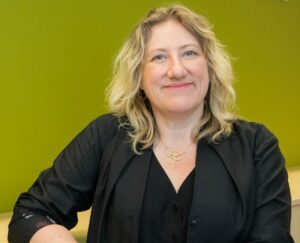 Emmanuelle Passegué, Ph.D.,
Director, Columbia Stem Cell Initiative Alumni endowed Professor of Genetics & Development
Columbia University Irving Medical Center
Emmanuelle Passegué, Ph.D.,
Director, Columbia Stem Cell Initiative Alumni endowed Professor of Genetics & Development
Columbia University Irving Medical Center
Dr. Emmanuelle Passegué is the endowed Alumni Professor of Genetics & Development and the Director of the Columbia Stem Cell Initiative at Columbia University. She received her Ph.D. from the University Paris XI (France), trained with Drs. Erwin Wagner (IMP, Austria) and Irv Weissman (Stanford University), and was a faculty at UCSF for 11 years before joining Columbia in 2017. Dr. Passegué received a number of awards including two consecutive Outstanding Investigator Awards from the NHLBI and the 2019 William Dameshek Prize from the American Society of Hematology and was the 2019 president of the International Society of Experimental Hematology.
Dr. Denise Al Alam
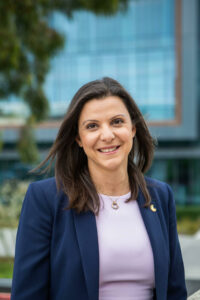
Dr. Al Alam is an investigator at the Lundquist institute and an associate professor of Pediatrics at the David Geffen School of Medicine at UCLA. She obtained a first Master’s degree in Biochemistry from Lebanese University, then another master’s degree from INSA/Universite Claude Bernard in France before completing a Ph.D. in Immunology at the Universite de Reims Champagne-Ardennes in France.
Her postdoctoral training focused on lung development and the pathophysiology of pediatric lung diseases under the mentorship of Saverio Bellusci at the Saban Research Institute, Children’s Hospital Los Angeles. This training led her to her first faculty position at Keck school of medicine at USC in 2012. She moved to UCLA in 2020, to pursue her research in understanding the mechanisms of normal human lung development and how this knowledge can teach us about disease states. She also focuses in part on lung defects and the etiology of these defects in Trisomy 21. She has a track record of publications related to these topics. She actively collaborates with national and international scientists, including several collaborations with French colleagues.
Dr. Al Alam is also actively involved in teaching and mentoring of junior faculty, postgraduate, graduate, undergraduate, and high school students. In addition to her teaching and research roles, she is very involved in professional activities such as serving on editorial boards, reviewing manuscripts and grants, and participating in professional societies. She received numerous honors and awards for her contributions to the field of lung development including the UCLA Vedang Londhe memorial state of the art lecture, the ATS Mid-career outstanding achievement award and the Lundquist mid-career achievements award. She has secured several research grants from NIH and CIRM to support her research on human lung development and lung diseases associated with prematurity and congenital anomalies.
Dr. Norbert Perrimon
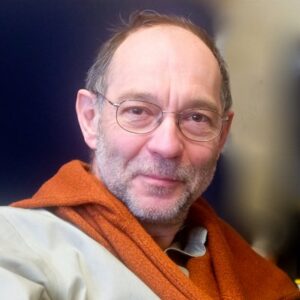 Norbert Perrimon, PhD, James Stillman Professor of Developmental Biology in the Department of Genetics at Harvard Medical School, Investigator of the Howard Hughes Medical Institute, and Associate member of the Broad Institute, is a geneticist known for pioneering a number of techniques in Drosophila, as well as specific substantive contributions to signal transduction, developmental biology, and physiology.
Norbert Perrimon, PhD, James Stillman Professor of Developmental Biology in the Department of Genetics at Harvard Medical School, Investigator of the Howard Hughes Medical Institute, and Associate member of the Broad Institute, is a geneticist known for pioneering a number of techniques in Drosophila, as well as specific substantive contributions to signal transduction, developmental biology, and physiology.
Among the tools that he has developed are: the FLP-FRT Dominant Female Sterile technique to generate germline mosaics, the GAL4-UAS method to control gene expression both spatially and temporally, highthroughput genome wide RNAi and CRISPR screens, and proximity labeling methods to identify secreted molecules. These methods have had transformative impacts in signal transduction, development, physiology, neurobiology, and functional genomics.
Early in his career, he identified and characterized factors involved in RTK, Wnt, and JAK/STAT signaling, contributing to the elucidation of these canonical pathways. Perrimon went on discover intestinal stem cells in the adult fly gut, opening up an entire field of study to identify factors and pathways involved in stem cell homeostasis and regeneration. In more recent years, he has taken a systematic approach to identify factors involved in inter-organ communication, which are leading to a systems wide understanding of how hormonal systems are regulated by the state of various organs in homeostatic and stressed conditions.
Perrimon was born in France in 1958 and became a U.S. citizen in 2005. He received a doctorate from the University of Paris in 1983. He has been on the faculty of Harvard Medical School since 1986. He received the George W. Beadle Medal form the Genetics Society of America in. 2004. He has been elected to the American Academy of Arts and Sciences, American Association for the Advancement of Science, EMBO, and National Academy of Sciences. He has trained more than 120 students and postdoctoral fellows, with most of them currently holding academic positions.
Dr. Miriam Merad
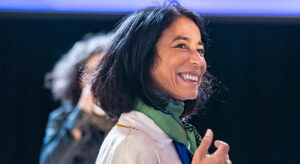 Miriam Merad, M.D.; Ph.D. is the Dean of Translational Research and Therapeutic Innovation, Chair of the Department of Immunology and Immunotherapy, Director of the Precision Immunology Institute and the Director of the Mount Sinai Human Immune Monitoring Center (HIMC) at the Mount Sinai School of Medicine in New York.
Miriam Merad, M.D.; Ph.D. is the Dean of Translational Research and Therapeutic Innovation, Chair of the Department of Immunology and Immunotherapy, Director of the Precision Immunology Institute and the Director of the Mount Sinai Human Immune Monitoring Center (HIMC) at the Mount Sinai School of Medicine in New York.
Dr. Merad is an internationally acclaimed physician-scientist and a leader in the fields of immunology and oncology. Her work spans a range of areas and her finding have changed the immunology text books by uncovering deep complexity in the immune system and re-defining the immune system’s contributions to several major human diseases. She has authored more than 300 papers, many of which are in the highest scientific journals and are amongst the most cited papers. She is on the scientific advisory board of numerous companies . She is an elected member of the National Academy of Sciences and the National Academy of Medicine, the most presitigious body of science in the US, in recognition of her contributions to the field of Immunology and ImmunoOncology. She is also an elected member of the American Society of Clinical Investigation, an elected fellow of the American Association for Cancer Research Academy and the Academy of ImmunOncology and the recipient of the William Coley Award and the Leopold Griffuel cancer prize award.
Dr. Karim Belarbi
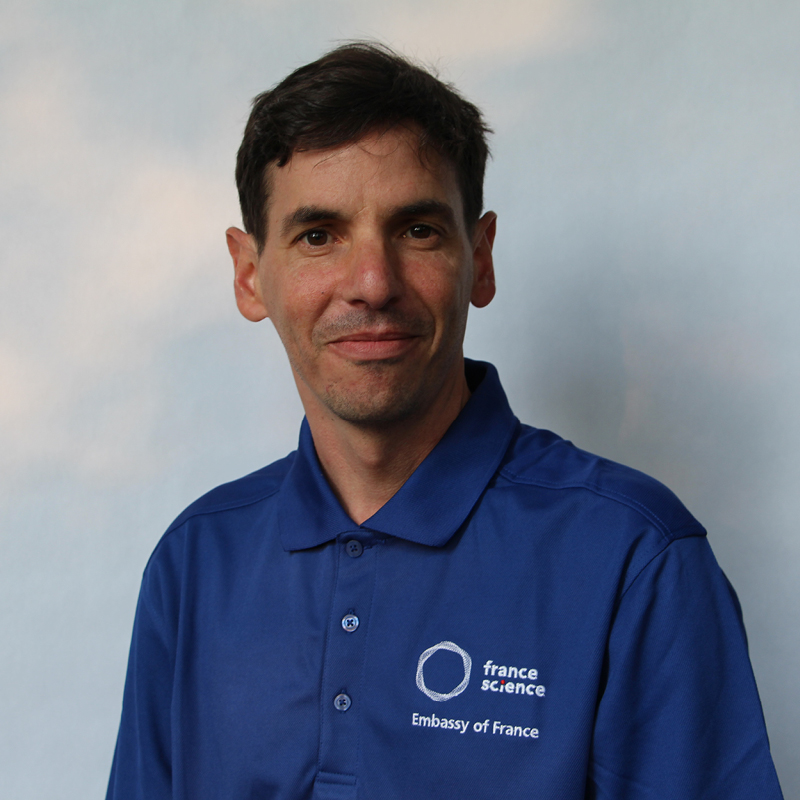 Karim Belarbi has been the Attaché for Science and Technology for Life Sciences and Biomedical Research at the Consulate General of France in Los Angeles since October 2021. In this role, he monitors scientific and technological advances and promotes joint projects addressing critical biomedical and healthcare challenges.
Karim Belarbi has been the Attaché for Science and Technology for Life Sciences and Biomedical Research at the Consulate General of France in Los Angeles since October 2021. In this role, he monitors scientific and technological advances and promotes joint projects addressing critical biomedical and healthcare challenges.
Karim obtained a Doctorate in Pharmacy from the University of Reims in 2005 and a PhD in Neuroscience from the University of Lille in 2009. After completing a postdoctoral fellowship at the University of California, San Francisco (UCSF), he became Associate Professor in 2014 and Full Professor in 2021 at the University of Lille.
He taught basic pharmacology and pharmacology applied to therapeutics at the university level and led research aimed at understanding the molecular mechanisms involved in neurodegenerative diseases such as Alzheimer’s and Parkinson’s. He has published over 35 articles in peer-reviewed journals and served on the board of the French Society of Pharmacology and Therapeutics.
Session II
Dr. Fabien Agenes
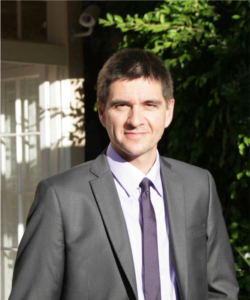 Dr. Fabien Agenes is a research scientist and the current National Institute of Health and Medical Research (Inserm, France) representative in North America. He currently leads the Inserm office in Washington DC (United States).
Dr. Fabien Agenes is a research scientist and the current National Institute of Health and Medical Research (Inserm, France) representative in North America. He currently leads the Inserm office in Washington DC (United States).
He is in charge of strengthening ties between Inserm and North American labs, promotes the French lifescience ecosystem, he also contributes to the elaboration and the implementation of Inserm’s international strategy. From 2020 to 2024, he was based in the “Auvergne Rhône-Alpes” region, the 2nd largest in France. Fabien Agenes was in charge of the “Europe and International Affairs” portfolio. His main duty was to help Inserm scientists build international collaborative projects. He was also promoting participation of researchers to Horizon Europe programs, including ERC, Health Cluster, MSCA, and EIC.
Fabien Agenes was seconded by Inserm to the French Ministry of Foreign Affairs from 2011 to 2020. He worked as “Attaché for Science and Technology” in Los Angeles CA (United States) for 5 years, and subsequently as “Science and Higher Education Attaché” in Vancouver BC (Canada) for 4 years. In both cities, his office was located at the Consulate General of France.
His scientific career began at the Pasteur Institute (Paris, France; 1993-1999). He went on to be a member of the prestigious Basel Institute for Immunology within the Hoffman-La Roche Ltd. group (Basel, Switzerland). As an Inserm research scientist, Fabien Agenes worked consecutively at the Pasteur Institute (2001-2002), at the Alternative Energies and Atomic Energy Commission (CEA Grenoble, France; 2002-2007), and at the Research Department of the University of Montréal Hospital Center (Montréal QC, Canada; 2007-2011). While in Montréal, he was also Associate Professor at the University of Montréal.
Fabien Agenes’ major contributions are towards the development of the immune system and its homeostasis. He established international collaborations and he authored 30 publications in Immunology, Neuro-immunology, and Genomics (*). He completed a doctorate thesis from Sorbonne Université (1999) and diploma of « Accreditation to Supervise Research » (HDR, Faculty of Medicine – Université Grenoble Alpes ; 2004).
Dr. Sylvette Tourmente
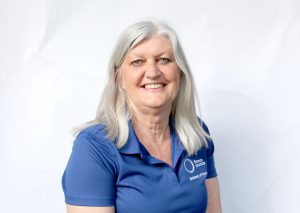 Between 1997 and 2013, Sylvette Tourmente served as CNRS Research Director in Life Sciences, was the PI of a team entitled: Establishment, maintenance, and epigenetic regulation of Heterochromatin, in the GReD (Genetics, reproduction and Development) laboratory in Clermont-Ferrand (France). Meanwhile, she was the communication- correspondent for the GReD, in charge of the international affairs for the doctoral school in Life Sciences, Health, Agriculture and Environment and scientific delegate for the Hceres (Research and Higher Education Evaluation Committee). In 2013, she joined the French Embassy in Budapest (Hungary) as attaché for science and higher education cooperation and was assigned in Germany as scientific attaché at the French Embassy in Berlin in 2017. On October 1, 2019, she became Director of the CNRS Office for the USA and Mexico, in Washington D.C.
Between 1997 and 2013, Sylvette Tourmente served as CNRS Research Director in Life Sciences, was the PI of a team entitled: Establishment, maintenance, and epigenetic regulation of Heterochromatin, in the GReD (Genetics, reproduction and Development) laboratory in Clermont-Ferrand (France). Meanwhile, she was the communication- correspondent for the GReD, in charge of the international affairs for the doctoral school in Life Sciences, Health, Agriculture and Environment and scientific delegate for the Hceres (Research and Higher Education Evaluation Committee). In 2013, she joined the French Embassy in Budapest (Hungary) as attaché for science and higher education cooperation and was assigned in Germany as scientific attaché at the French Embassy in Berlin in 2017. On October 1, 2019, she became Director of the CNRS Office for the USA and Mexico, in Washington D.C.
Dr. William Hammond
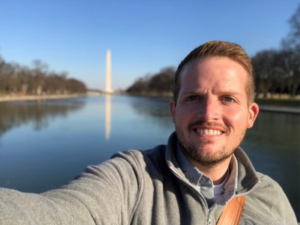 Dr. William (Bill) Hammond – Assistant Professor of Plant Ecophysiology
Dr. William (Bill) Hammond – Assistant Professor of Plant Ecophysiology
William (Bill) aims to understand both the external drivers (e.g., climate, biotic agents) and internal mechanisms (e.g., plant physiological processes) that determine when trees stop living, and start dying – to answer the question, “What kills trees?”. As an Assistant Professor of Plant Ecophysiology at the University of Florida, his research crosses the scales of single xylem conduits to globally distributed forests, and involves anatomical, physiological, and climatological approaches. He is particularly passionate about the fates of big, old trees – and their disproportionate contributions to healthy forest ecosystems. More information on his laboratory and research can be found at https://ecophyslab.com.
Education:
BS in Biology, University of Central Oklahoma
PhD in Plant Biology, Oklahoma State University
Dr. Jean-Philippe Nicolaï
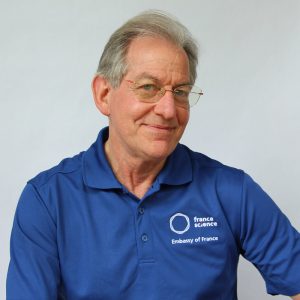 Jean-Philippe NICOLAÏ, Ph.D. is Attaché for Science and technology at the Consulate General of France in Boston since September 2021.
Jean-Philippe NICOLAÏ, Ph.D. is Attaché for Science and technology at the Consulate General of France in Boston since September 2021.
Before Dr. Nicolaï has held various leadership positions within the French Alternative Energies and Atomic Energy Commission (CEA), a government-funded research organization in the fields of energy, defense, life science, and digital technologies.
His main research interest has been focused on the fundamentals physics of molecular energy transfer and laser-produced plasma to later move to more applied research on digital technologies and emerging technologies for renewable energy. In 2016, Dr Nicolaï was nominated as Innovation Program Manager at CEA Bordeaux to follow and advise researchers in technology transfer and in creation of deeptech start-ups involving lasers or robotics.
In scientific literature, he has 14 publications in the fields of molecular spectroscopy and in physical and chemical characterization of plasmas. He has a Ph.D. in physical chemistry from Illinois Institute of Technology, an engineering degree from the École Supérieure de Chimie Industrielle de Lyon now called CPE Lyon, and was a post-doctoral fellow in the laboratory of Pr. Herbert Sawin within the chemical engineering department at MIT Cambridge MA (USA).
Kasra Zarei
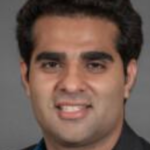 Kasra is a MD student at the University of Iowa and a PhD student in epidemiology and global public health in a collaborative doctoral program between the Karolinska Institutet in Sweden and the U.S. National Institute on Minority Health and Health Disparities.
Kasra is a MD student at the University of Iowa and a PhD student in epidemiology and global public health in a collaborative doctoral program between the Karolinska Institutet in Sweden and the U.S. National Institute on Minority Health and Health Disparities.
He was a 2023-2024 Chateaubriand fellow, working at the Equipe de Recherche en Epidémiologie Sociale at IPLESP/Inserm (Institut Pierre Louis d’Epidémiologie et de Santé Publique, L’Institut national de la santé et de la recherche médicale).
Dr. Lisa Bernstein
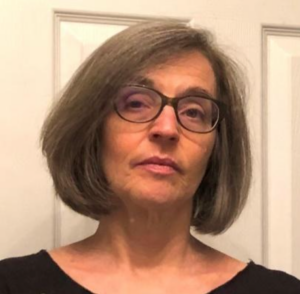 Lisa Bernstein is an Academic Exchange Specialist in the European and Eurasian Programs Branch of the U.S. Department of State’s Office of Academic Exchange Programs in the Bureau of Educational and Cultural Affairs (ECA). She is currently responsible for Fulbright exchange programs with France, Ireland, Italy, Malta, North Macedonia, and Switzerland.
Lisa Bernstein is an Academic Exchange Specialist in the European and Eurasian Programs Branch of the U.S. Department of State’s Office of Academic Exchange Programs in the Bureau of Educational and Cultural Affairs (ECA). She is currently responsible for Fulbright exchange programs with France, Ireland, Italy, Malta, North Macedonia, and Switzerland.
Prior to joining ECA, Lisa was Professor of English and Women’s Studies and Director of the University of Maryland Global College’s Writing Program. In previous positions at the National Endowment for Humanities and the Association of American Colleges and Universities, she worked in areas of diversity, equity, and global education. Dr. Bernstein earned her bachelor’s degree at Wellesley College, master’s in German literature and linguistics from Georgetown University, and Ph.D. in comparative literature from the University of Maryland at College Park. She has lived and studied in France and Germany, and speaks French, German, and Italian.
Exhibition Standing for Freedom - Portraits of Scientists in Exile
Pascale Laborier
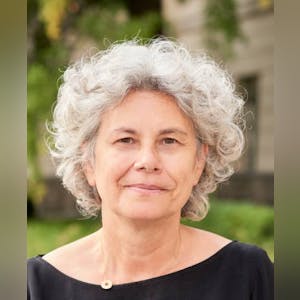 Pascale Laborier is a Professor of Political Science at the University of Paris Nanterre and a researcher at the Institute of Social Sciences of Politics (ISP/CNRS). Since September 2024, she has held the position of project officer at Campus Condorcet / UXIL. Previously, she was interim administrator (2023-2024) and First Vice-President (2021-2023) of the University Paris Lumières. Pascale Laborier is actively engaged in defending academic freedom and supporting endangered scholars. She has been a member of the scientific council of the PAUSE program (National Program for the Urgent Aid and Reception of Scientists in Exile) since its creation in 2017.
Pascale Laborier is a Professor of Political Science at the University of Paris Nanterre and a researcher at the Institute of Social Sciences of Politics (ISP/CNRS). Since September 2024, she has held the position of project officer at Campus Condorcet / UXIL. Previously, she was interim administrator (2023-2024) and First Vice-President (2021-2023) of the University Paris Lumières. Pascale Laborier is actively engaged in defending academic freedom and supporting endangered scholars. She has been a member of the scientific council of the PAUSE program (National Program for the Urgent Aid and Reception of Scientists in Exile) since its creation in 2017.
Her recent research focuses on the history of exiled academics and the initiatives developed to protect them. In 2024, she co-edited a book titled « Academics in a Century of Displacement: The Global History and Politics of Protecting Endangered Scholars », published by Springer VS.Pascale Laborier is a Fellow of the Convergence Institute where she has been leading a collaborative digital project « Geo-narratives. Narrative cartographies to understand qualified exile » since 2022. As part of the dissemination of her research on exile, she designed with photographer Pierre-Jérôme Adjedj a traveling exhibition titled « Standing for Freedom », presented at the Summit.
Session III
Dr. Luc Lenain
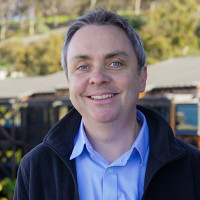 Luc Lenain is the head of the Air-Sea Interaction Research Laboratory at the Marine Physical Laboratory and the Physical Oceanography Research Division at the University of California, San Diego. Dr. Lenain employs a multidisciplinary approach, integrating laboratory experiments, field measurements, theoretical analysis, and numerical modeling to enhance our understanding of the complex interactions between the ocean and atmosphere.
Luc Lenain is the head of the Air-Sea Interaction Research Laboratory at the Marine Physical Laboratory and the Physical Oceanography Research Division at the University of California, San Diego. Dr. Lenain employs a multidisciplinary approach, integrating laboratory experiments, field measurements, theoretical analysis, and numerical modeling to enhance our understanding of the complex interactions between the ocean and atmosphere.
With a deep commitment to bridging basic and applied research, he focuses on translating scientific insights into practical solutions that benefit society. Dr. Lenain has collaborated extensively with partners across academia, industry, government, and non-governmental organizations, taking on leadership roles in various local and international programs (University-National Oceanographic Laboratory System – UNOLS, Southern Ocean Observing System SOOS) and orbital satellite missions such as SWOT, a new satellite system launched in December 2023. Lenain is also now engaged in research that advances the understanding of climate impacts, developing new remote sensing approaches and meaningful projection to foster resilience in communities affected by climate change.
Dr. Marie-Nathalie Contou Carrere
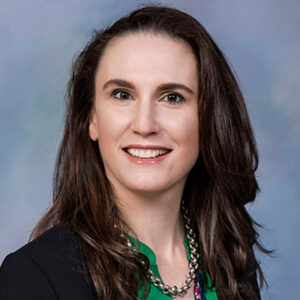 Marie Contou Carrere is the Executive Director of the Rice Sustainability Institute whose mission is to develop sustainable and equitable solutions to urgent climate challenges. She is also the Founding Executive Director of the Carbon Hub, launched in 2019 as a partnership between academia, industry and federal labs, led by Rice University and with over 100 researchers in 20 different organizations across four continents. Previously, Dr. Contou-Carrere held various technical and commercial positions at INEOS Olefins & Polymers USA. She holds a Ph.D. in Chemical Engineering and Materials Science from the University of Minnesota and a M. S. from Ecole Centrale Paris, France.
Marie Contou Carrere is the Executive Director of the Rice Sustainability Institute whose mission is to develop sustainable and equitable solutions to urgent climate challenges. She is also the Founding Executive Director of the Carbon Hub, launched in 2019 as a partnership between academia, industry and federal labs, led by Rice University and with over 100 researchers in 20 different organizations across four continents. Previously, Dr. Contou-Carrere held various technical and commercial positions at INEOS Olefins & Polymers USA. She holds a Ph.D. in Chemical Engineering and Materials Science from the University of Minnesota and a M. S. from Ecole Centrale Paris, France.
Dr. Joana Guerrin
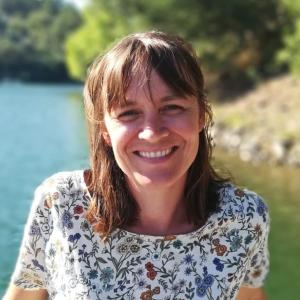 Joana Guerrin is a researcher in Political Science at INRAE (French Research Institute for Agriculture, Food and the Environment), within SAGE Lab (Societies and Government in Europe), based in Strasbourg, France. She is developing research on water-related risk policies, with a political sociology perspective, focusing on conflict analysis and policy instruments. She is currently developing several research projects on the appropriation of the concept of Nature-based Solutions in France and the US in flood-policy sector. She was granted a Fulbright Scholarship and was a visiting scholar at UC Berkeley in 2022-2023.
Joana Guerrin is a researcher in Political Science at INRAE (French Research Institute for Agriculture, Food and the Environment), within SAGE Lab (Societies and Government in Europe), based in Strasbourg, France. She is developing research on water-related risk policies, with a political sociology perspective, focusing on conflict analysis and policy instruments. She is currently developing several research projects on the appropriation of the concept of Nature-based Solutions in France and the US in flood-policy sector. She was granted a Fulbright Scholarship and was a visiting scholar at UC Berkeley in 2022-2023.
Dr. Emmanuel Boss
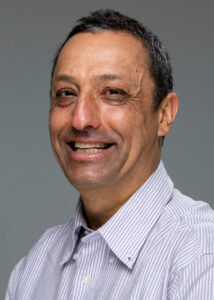 Dr. Boss was born in France and moved to Israel when he was seven. He received a BS in mathematics and physics and a MSc in oceanography in 1991 from Hebrew University, Israel, and his Ph.D. in oceanography from the University of Washington in 1997. He is currently a Professor at the School of Marine Science at the University of Maine where he has been since 2002. His work focuses primarily on the use of optical methods (in the ocean and from space) to understand and constrain oceanographic processes associated with plankton, microscopic organisms that fuel the aquatic foodchange. He is a Tara Expedition coordinator and has been involved with Tara field campaigns since 2009. The research vessel Tara is a French schooner belonging to a non-profit foundation that has been working with scientists worldwide to study plankton. Funded primarily by NASA he has been contributing to a novel understanding of planktonic ecosystems and their seasonality.
Dr. Boss was born in France and moved to Israel when he was seven. He received a BS in mathematics and physics and a MSc in oceanography in 1991 from Hebrew University, Israel, and his Ph.D. in oceanography from the University of Washington in 1997. He is currently a Professor at the School of Marine Science at the University of Maine where he has been since 2002. His work focuses primarily on the use of optical methods (in the ocean and from space) to understand and constrain oceanographic processes associated with plankton, microscopic organisms that fuel the aquatic foodchange. He is a Tara Expedition coordinator and has been involved with Tara field campaigns since 2009. The research vessel Tara is a French schooner belonging to a non-profit foundation that has been working with scientists worldwide to study plankton. Funded primarily by NASA he has been contributing to a novel understanding of planktonic ecosystems and their seasonality.
Dr. Joaquim Nassar
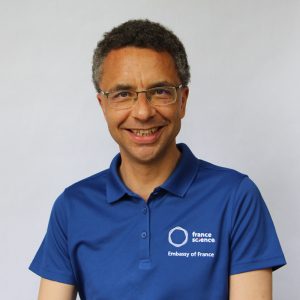 Attaché for Science and technology – Embassy of France in the United States
Attaché for Science and technology – Embassy of France in the United States
Joaquim Nassar graduated in engineering and doctorate from the Ecole Polytechnique, he taught there and became its Director of Studies from 2012 to 2015. He was also the Head of the « Strategy, Expertise, and Management of International Cooperation Programs » department within the Delegation for European and International Affairs at the Ministry of Higher Education and Research between 2018 and 2022, before becoming Attaché for Science and Technology at the Embassy of France in the US.
Joaquim also holds a DEA in Materials Science from ENSTA, and a PhD in Physics from the CNRS-Thomson CSF Joint Research Unit, Ecole Polytechnique. From 1998 to 1999, Dr. Nassar spent part of his PhD at the Massachusetts Institute of Technology.
Session IV
Dr. Rémi Soummer
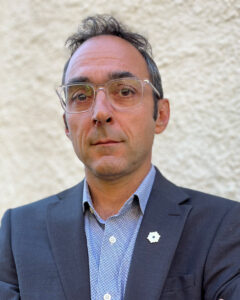 Dr. Rémi Soummer is an Astronomer at the Space Telescope Science Institute and Head of the Russell B. Makidon Optics Laboratory. His research centers around future missions aiming to detect and image other habitable Earths, with a focus on finding life. For over two decades, he has been at the forefront of creating innovative instrumentation concepts, technology, and algorithms to capture images and spectra of faint exoplanets orbiting their parent stars.
Dr. Rémi Soummer is an Astronomer at the Space Telescope Science Institute and Head of the Russell B. Makidon Optics Laboratory. His research centers around future missions aiming to detect and image other habitable Earths, with a focus on finding life. For over two decades, he has been at the forefront of creating innovative instrumentation concepts, technology, and algorithms to capture images and spectra of faint exoplanets orbiting their parent stars.
Significant contributions from Soummer include the invention and development of the Apodized Pupil Lyot Coronagraph and serving as coronagraph architect for the Gemini Planet Imager. As a leader in space mission operations at STScI, he played a key role in the early development of operations for the James Webb Space Telescope, notably for its coronagraphic instruments, and by leading the Telescopes Group responsible for mirror alignments. Since 2017, Soummer has dedicated himself entirely to STScI’s Optics Laboratory, developing technology for a future flagship mission to image other Earths and search for life, now known as the Habitable Worlds Observatory, while also fostering future international collaborations on this project.
Dr. Luc Julia
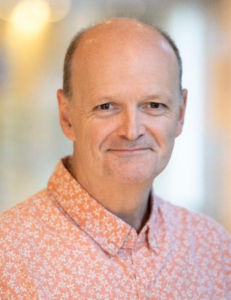 Dr. Luc JULIA, Chief Scientific Officer for Renault, was CTO and Senior Vice President of Innovation for Samsung Electronics, directed Siri at Apple, was Chief Technologist at Hewlett-Packard and cofounded a number of start-ups in the Silicon Valley. While conducting research at SRI International, he was involved in the creation of Nuance Communications, now the world leader in speech recognition.
Dr. Luc JULIA, Chief Scientific Officer for Renault, was CTO and Senior Vice President of Innovation for Samsung Electronics, directed Siri at Apple, was Chief Technologist at Hewlett-Packard and cofounded a number of start-ups in the Silicon Valley. While conducting research at SRI International, he was involved in the creation of Nuance Communications, now the world leader in speech recognition.
Recipient of the Legion of Honor, the highest order of France, Officer of National Order of Merit and member of the French Academy of Technologies, he holds degrees in Mathematics and Computer Science from the University Pierre et Marie Curie in Paris and earned a Ph.D. in Computer Science at the Ecole Nationale Supérieure des Télécommunications de Paris.
He is the bestselling author of the book “There is no such thing as Artificial Intelligence”, holds dozens of patents and is recognized as one of the top 100 most influential French developers in the digital world.
Dr. Pierre Deymier
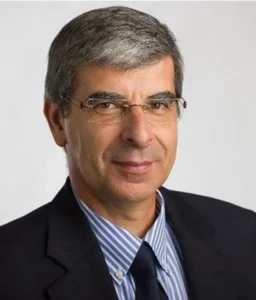 Pierre A. Deymier is a professor of materials science and engineering at the University of Arizona. He is Director of the US National Science Foundation (NSF)-funded New Frontiers of Sound Science and Technology Center. He is also a faculty member in the BIO5 Institute, biomedical engineering program and applied mathematics graduate interdisciplinary program. He was Head of the Department of Materials Science and Engineering from 2011 to 2021 and Director of the School of Sustainable Engineered Systems during the period 2009-2017. He was a Founding Dean and served as Interim Associate Dean (2021-2023) of the Arizona College of Technology at Hebei University of Technology (HEBUT), Tianjin, China.
Pierre A. Deymier is a professor of materials science and engineering at the University of Arizona. He is Director of the US National Science Foundation (NSF)-funded New Frontiers of Sound Science and Technology Center. He is also a faculty member in the BIO5 Institute, biomedical engineering program and applied mathematics graduate interdisciplinary program. He was Head of the Department of Materials Science and Engineering from 2011 to 2021 and Director of the School of Sustainable Engineered Systems during the period 2009-2017. He was a Founding Dean and served as Interim Associate Dean (2021-2023) of the Arizona College of Technology at Hebei University of Technology (HEBUT), Tianjin, China.
Deymier received his PhD from the Department of Materials Science and Engineering at the Massachusetts Institute of Technology in 1985 and subsequently joined the University of Arizona. He received an Engineering Degree (1982), in Materials Science from the Institut des Sciences de l’Ingénieur, Université des Sciences et Techniques du Languedoc, Montpellier, France.
Dr. Martial Hébert
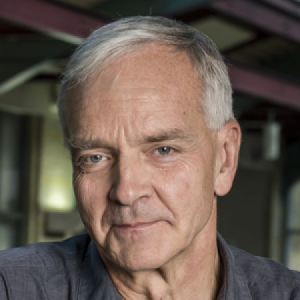 Martial Hebert is a University Professor of Robotics at Carnegie Mellon University. He currently serves as Dean of the School of Computer Science and he previously served as Director of the Robotics Institute, one of the seven academic departments in the School of Computer Science. His research interests include computer vision and robotics, especially recognition in images and video data, model building and object recognition from 3D data, and perception for autonomous robots.
Martial Hebert is a University Professor of Robotics at Carnegie Mellon University. He currently serves as Dean of the School of Computer Science and he previously served as Director of the Robotics Institute, one of the seven academic departments in the School of Computer Science. His research interests include computer vision and robotics, especially recognition in images and video data, model building and object recognition from 3D data, and perception for autonomous robots.
Dr. Emmanuelle Pauliac-Vaujour
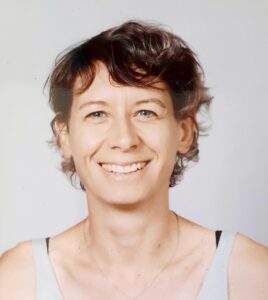 Attaché for Science and technology
Attaché for Science and technology
Consulate General of France in San Francisco
Photo competition awards
Laura Gonçalves de Souza
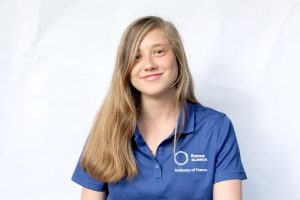
Laura G. De Souza is the Scientific Cooperation Officer for the National Research Institute for Agriculture, Food and Environment (INRAE) in Canada and the United States. She holds a Master’s degree in International Cooperation and Project Management. She has worked in several countries in multilateral and international organizations.
Closing remarks
Dr. Kimberly Montgomery
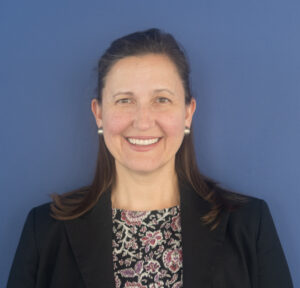 Kim Montgomery is the Director of International Affairs and Science Diplomacy at the American Association for the Advancement of Science. In this role, she advises on bilateral and multilateral relationships and manages the AAAS Center for Science Diplomacy. She also serves as the Executive Editor of the policy journal Science & Diplomacy.
Kim Montgomery is the Director of International Affairs and Science Diplomacy at the American Association for the Advancement of Science. In this role, she advises on bilateral and multilateral relationships and manages the AAAS Center for Science Diplomacy. She also serves as the Executive Editor of the policy journal Science & Diplomacy.
Kim has worked in science policy and international affairs in the U.S. and Austria. In Austria, she managed and advised on international relationships for the International Institute for Applied Systems Analysis (IIASA) and was a scientific consultant for the International Atomic Energy Agency (IAEA). Her U.S. experience includes six years at the U.S. House of Representatives as professional staff for the Committee on Science, Space, and Technology and as a legislative assistant for Representative Rush Holt (NJ-12). Directly prior to joining AAAS in 2021, Kim was a senior program officer at the Nuclear Threat Initiative (NTI) in the Scientific and Technical Affairs program.
Kim was an AAAS Science and Technology Policy Fellow at the National Science Foundation’s Office of Legislative and Public Affairs. She received her Ph.D. in psychology and neuroscience from Princeton University and has a bachelor’s degree in cognitive science from Northwestern University.
Dr. Florent Bernard
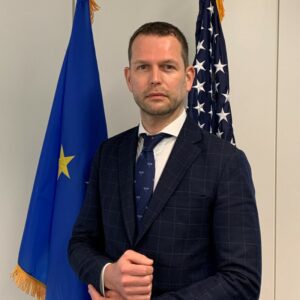 Dr. Florent Bernard is the Counsellor for Research and Innovation at the European Union Delegation to the United States in Washington, DC. He assists in the strengthening of transatlantic synergies, notably through the European Research and Innovation (R&I) programme ‘Horizon Europe’. Prior to this position, he was an International Relations Officer for the European Commission working on EU-China and EU-India R&I cooperation. Dr. Bernard has a Ph.D. in molecular biology from the Université Libre de Bruxelles, he also studied at the University of Georgia, USA; the University of Barcelona, Spain; and the University of Florence, Italy.
Dr. Florent Bernard is the Counsellor for Research and Innovation at the European Union Delegation to the United States in Washington, DC. He assists in the strengthening of transatlantic synergies, notably through the European Research and Innovation (R&I) programme ‘Horizon Europe’. Prior to this position, he was an International Relations Officer for the European Commission working on EU-China and EU-India R&I cooperation. Dr. Bernard has a Ph.D. in molecular biology from the Université Libre de Bruxelles, he also studied at the University of Georgia, USA; the University of Barcelona, Spain; and the University of Florence, Italy.
He is an Honorary Citizen of the State of Georgia, USA.
